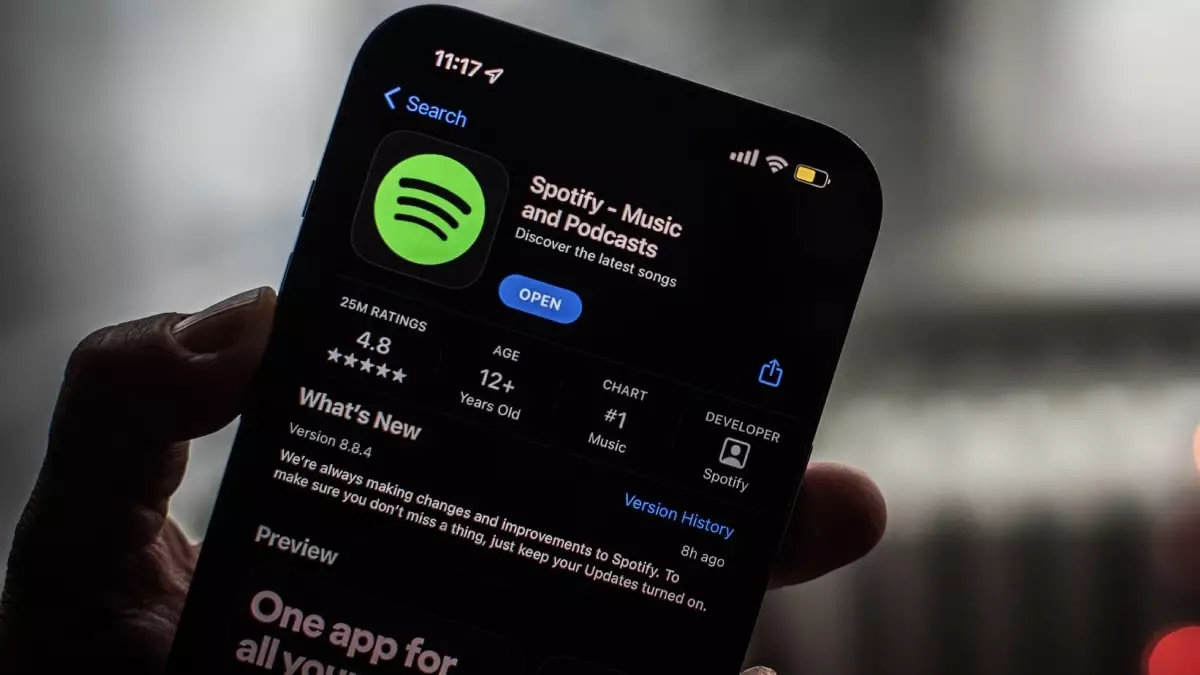The introduction of Europe’s new competition law for Big Tech has far-reaching consequences for companies like Spotify. It was recently announced that Spotify users in Europe will now be able to purchase audiobooks and subscription plans directly from the music-streaming app. This move is aimed at bypassing Apple’s 30 percent fee for in-app purchases through its App Store. Spotify has long been engaged in a legal battle with Apple over this contentious issue, and the new competition law provides a welcome solution. This article explores the implications of this development and its potential impact on the relationship between app developers and tech giants.
For years, Spotify has contended that it was forced to increase the price of its monthly subscriptions to accommodate the costs associated with Apple’s App Store rules. The restrictive rules prevented Spotify from promoting offers, disclosing prices, or even guiding users on where and how to make purchases. The Digital Markets Act (DMA) will now enable Spotify to share detailed information about deals, promotions, and alternative payment options within the European Union (EU). This legislative change represents a significant win for Spotify, allowing it to finally operate on a level playing field within the EU.
Equal Treatment for Big Tech
Under the DMA, all Big Tech firms are required to treat their own products and services on par with those of their competitors. This means that Spotify will no longer face discriminatory practices and policies from Apple’s App Store. The EU’s aim with this legislation is to foster fair competition and prevent tech giants from monopolizing the market. By forcing companies like Apple to adopt a more transparent and equitable approach, the DMA promotes healthier competition and offers consumers greater choice and value.
Despite the DMA’s directives, Apple has plans to challenge the European Union’s decision to include the entire App Store in the bloc’s new digital antitrust list. Apple has a long history of defending its App Store rules, and this legal battle is expected to continue. Notably, Apple has also faced criticism from Meta CEO, Mark Zuckerberg, who highlighted concerns about App Store policies and fee structures. The ongoing tension between Apple and other industry leaders underscores the need for comprehensive regulatory oversight in the tech sector.
An Expanded Marketplace
This development opens up new possibilities for Spotify and other app developers. By offering audiobooks and subscription plans within the music-streaming app, Spotify can broaden its product offerings and reach a wider audience. Users will benefit from the convenience of accessing multiple services in one platform, enhancing their overall experience. Furthermore, this move invites new competition into the market, as other companies may also explore similar expansion opportunities. Ultimately, this increased competition will result in better services and more affordable options for consumers.
Europe’s new competition law is a significant step towards reshaping the landscape of app development and the relationships between app developers and tech giants. The DMA sets a precedent for other regions to consider similar regulations, potentially signaling a global shift towards fairer competition practices in the app market. As the digital economy continues to evolve, it is crucial for governments and regulatory bodies to keep pace and ensure that consumers and businesses are protected from anti-competitive practices. The developments in Europe serve as a case study for promoting innovation, diversity, and choice within the app industry.
Spotify’s ability to offer audiobooks and subscription plans within the app is a game-changer for the company and the wider app development landscape. This move not only helps Spotify evade Apple’s fees but also sparks healthy competition within the market. The impact of Europe’s new competition law goes beyond just Spotify, serving as a catalyst for change in the tech industry. With the DMA, app developers can now operate on a level playing field, providing consumers with more options and better value. As the battle between app developers and tech giants continues, regulatory oversight will play a vital role in fostering fair practices and promoting a thriving digital ecosystem.

Leave a Reply